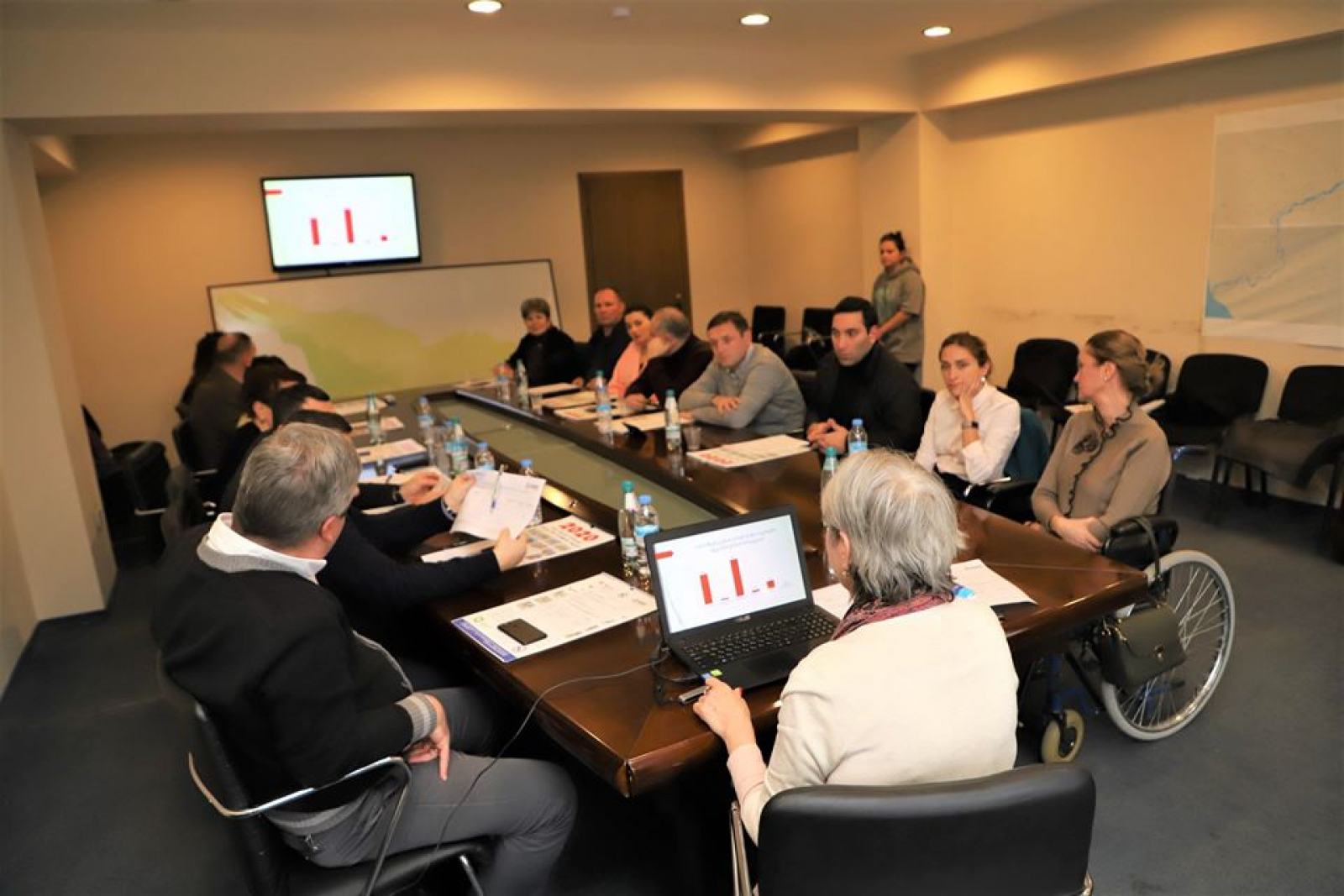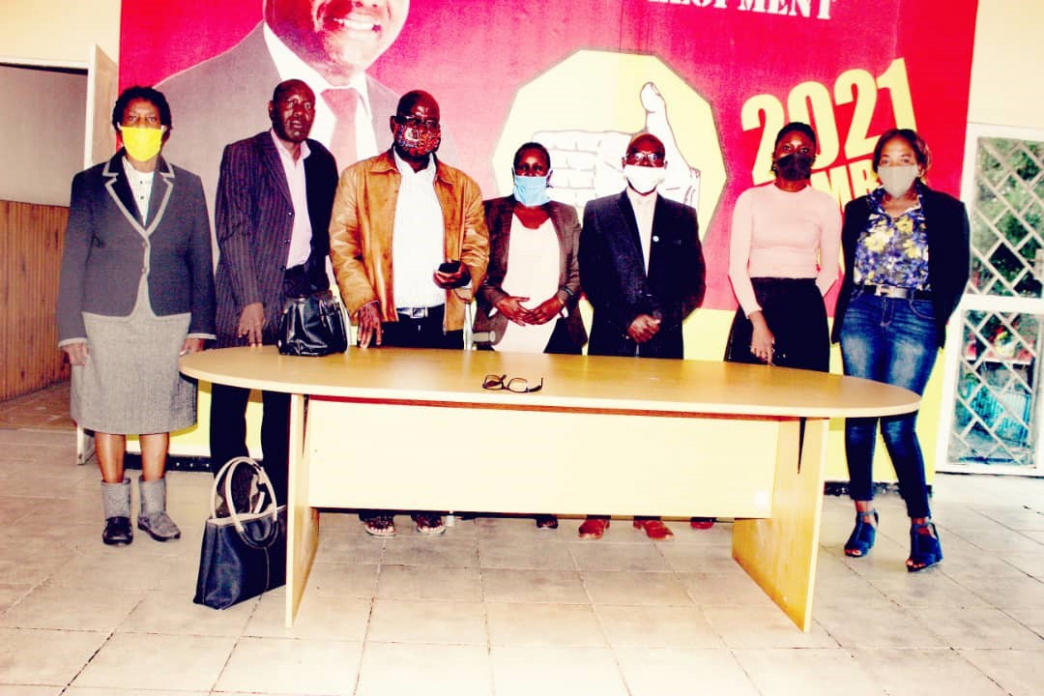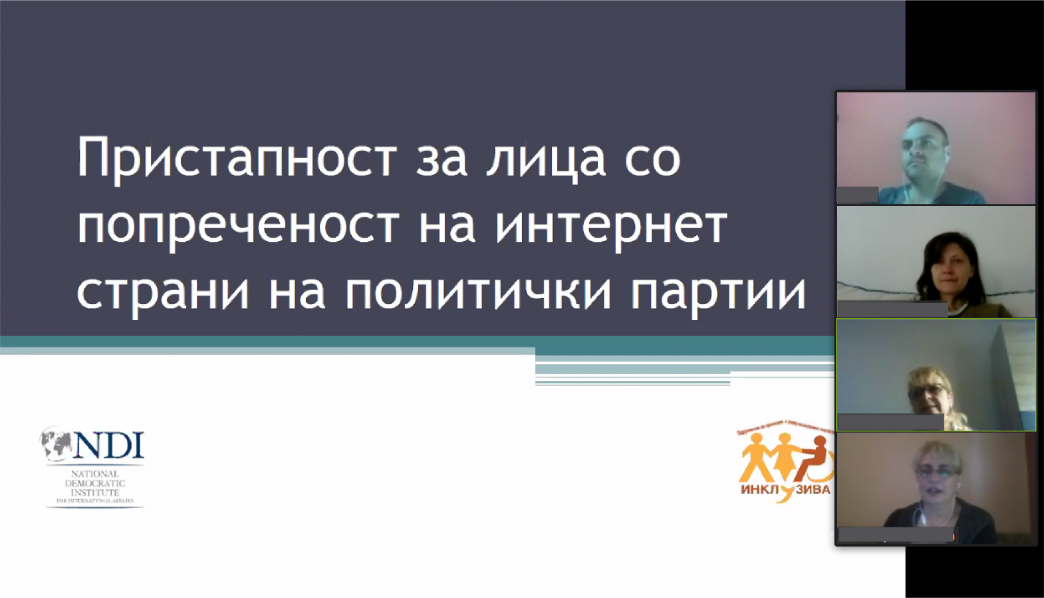
SHARE
Political parties play an important role in aggregating and representing public interests, shaping political agendas and developing government policies and programs. Parties are also a vehicle for contesting power and earning the right to govern through peaceful elections. To become more competitive, parties can make room for diverse voices within their organizations and practice more inclusive policy-making and decision-making. These actions will help build and maintain a broader base of constituent support and earn citizen trust.
The National Democratic Institute (NDI) assists political parties adopt practices to increase inclusivity of traditionally marginalized or underrepresented communities. Across the political spectrum, NDI is sharing tools that allow parties to attract new constituents and have the credibility to speak and act on behalf of those constituents. This work has become even more essential during the COVID-19 pandemic, which has disproportionately affected marginalized groups, particularly persons with disabilities. These communities are at risk of being left further behind.
Despite making up 15 to 20 percent of the world’s population, the number of persons with disabilities elected to office and who hold leadership positions within political parties remains low. However, NDI has seen time and again parties that embrace accessibility and the inclusion of diverse disability voices when developing political party priorities, increase their chances for success.
Therefore, to commemorate the International Day of Persons with Disabilities and this year’s theme “Building Back Better: Toward a Disability-Inclusive, Accessible and Sustainable post COVID-19 World,” NDI is highlighting different ways local partners in three countries -- Georgia, North Macedonia, and Zambia -- are bringing together political parties and disabled persons organizations to amplify their political influence and work toward more disability-inclusive governing processes.
Georgia
Ahead of Georgia’s October 2020 parliamentary elections, NDI supported regional and local civic groups to work together to advocate for the needs of marginalized groups, including persons with disabilities, to political parties and candidates. Civic partners in Zugdidi, a large city in northwest Georgia, and Marneuli, a majority-minority municipality in the south, convened working group meetings with political party representatives to discuss issues affecting persons with disabilities. In Zugdidi, Association Dea worked with the Georgian Young Lawyers Association and in Marneuli, four groups -- Salam Platform, Civic Engagement and Activism Center, New Thinking Institute and Radio Marneuli -- demanded electoral platforms that responded to needs identified by persons with disabilities. For example, the groups called for party platforms that explicitly recognize the rights of all persons with disabilities from all ethnic backgrounds, and election campaigns that are accessible to persons with disabilities in every community. In addition, they recommended parties support persons with disabilities in local public and political life through programs that prioritize their employment in the public sector or benefits to companies that employ persons with disabilities. In their responses, parties committed to adapting infrastructure, encouraging employment of PWDs through special measures, and designing and offering different services tailored to the needs of PWDs. To ensure political parties went on the record about their plans so that voters could make more informed choices, civic groups organized debates on local media stations between candidates and parties on these issues. After the elections, partners now are working with the public to hold winning candidates accountable to their promises.
Earlier in 2020, NDI supported Association DEA in Zugdidi in their effort to bring together the local disability community and elected officials to introduce new municipal services tailored to persons with disabilities. To inform its policy recommendations, Association DEA gathered feedback from the community through targeted surveys, discussions and meetings. As a result of regular working meetings between activists and local government representatives, Zugdidi’s 2021 municipal budget includes subsidized utilities, discounted public transportation fares and pilot rehabilitation and habilitation services. These changes will improve the quality of life and support the independence of all residents with disabilities. DEA’s constructive efforts also led the government to establish a permanent consultative working group composed of disabled persons organizations and lawmakers. The group, once up and running after the pandemic, will monitor service delivery for fairness, accessibility and quality.
North Macedonia
NDI has collaborated with the Association for Promotion and Development of an Inclusive Society (Inkluziva) for many years. Recently, Inkluziva worked with NDI to develop a questionnaire to assess the level of inclusion of persons with disabilities within six political parties across the political spectrum of North Macedonia. The questionnaire assessed each party’s understanding of the Convention of the Rights of Persons with Disabilities; the accessibility of party information and websites; the extent of participation of persons with disabilities in the party; and the extent of the inclusion of persons with disabilities in party campaigns. The surveys demonstrated that website accessibility was a consistent, yet surmountable, gap that could be addressed through online training.. Inkluziva also worked with each party to identify and adopt basic, but significant, modifications such as screen magnification and color contrast.
Ahead of the July 2020 parliamentary elections, Inkluziva monitored parties’ campaigns and found during the month-long campaign period, all six partners adopted accessibility and inclusivity recommendations by using subtitles in their videos, sign language interpretation for larger events, and more. In addition, Incluziva noted that the Social Democratic Union of Macedonia (SDSM) party published its entire election program in sign language, and the State Election Commission published Inkluziva’s audio voting guide to promote the participation of voters who are blind or have low vision. Inkluziva’s engagement was essential to putting accessibility and inclusion on political party agendas, and more progress is expected in the years to come.
Zambia
In the lead-up to Zambia’s 2021 general elections, NDI, in partnership with the Zambia Federation of Disability Organizations (ZAFOD) is working to ensure disability issues are at the forefront for candidates and voters alike. Most recently, ZAFOD reviewed the party manifestos of the largest political parties, including the Forum for Democracy and Development (FDD), the Patriotic Front (PF) and the United Party for National Development (UPND) for inclusivity. Following the review of the manifestos, ZAFOD rated each party against six measures designed to identify areas of improvement to increase the political participation of persons with disabilities.
UPND Engagement.jpg

Authors: Aleksandra Krsteska, Senior Program Manager, North Macedonia; Ella Kamuyuwa, Senior Program Assistant, Zambia; Naia Begashvili, Program Coordinator, Georgia; Tamar Urushadze, Program Officer, Georgia; Whitney Pfeifer, Senior Program Officer for Citizen Participation and Inclusion.



